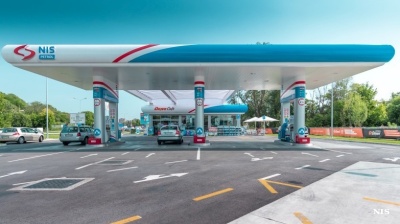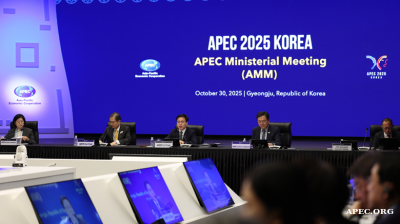Russian President Vladimir Putin held a meeting with Chinese Premier Li Qiang at the Kremlin on August 21, as the two nations continue to wrangle over contract terms to construct the Power of Siberia 2 (POS2) gas pipeline.
Moscow and Beijing have moved closer together in a no-limits relationship following a three-day trip to Moscow last March by Chinese President Xi Jinping that was an act of defiance of Western criticism of Russia’s invasion of Ukraine.
China has become Russia’s biggest trade partner, but the West has accused Beijing for also being Russia’s “biggest enabler” of sanction-busting and supplying the Kremlin with dual use technology and other goods allowing it to perpetrate its war in Ukraine.
Russia has also massively boosted oil exports to China after the West imposed twin sanctions on Russia’s crude and oil product exports at the end of 2022, but Russia has been unable to also switch its gas exports to China, because of the need to build large and expensive new gas pipelines.
Russia has already built the Power of Siberia 1 (PoS1) a decade ago, which exported 22bn cubic metres (bcm) to China in 2023 – about a seventh of the volume of gas that Russia used to export to Europe. The Kremlin is very keen to build the POS2, a parallel second strand, that has a mooted capacity of 50bcm a year and would go someway to replacing the lost EU business, but talks have been bogged down in wrangling over the commercial terms. China is holding out for rock bottom prices and is in no rush to close a deal.
Putin extended his "friendly greetings" to Xi during his meeting with Li, reminding the premier that Russia is expecting Xi's visit in October for the BRICS summit in Kazan. He also noted that China is a traditional participant in the Eastern Economic Forum held each year in Vladivostok, adding that Russia anticipates the arrival of a Chinese delegation led by Vice President Han Zheng in September. The two countries are also planning to "properly" celebrate the 75th anniversary of their diplomatic relations on October 2.
Premier Li, expressed his positive impressions from his visit to Russia in his replies. "Over the course of two days, I held a number of meetings with my Russian colleagues and felt the optimism of the Russian people," he said, highlighting the "dynamism" of Russia's socio-economic development.
Li assured that China is committed to implementing high-level agreements with Russia and intends to "constantly expand multifaceted mutually beneficial cooperation."
However, pointedly amongst all these planetaries the topic of gas and pipelines was not mentioned once. Previously when Putin met with Xi last year, the Russian president was ebullient about the progress the negotiations had made. Xi also made no mention of the deal on that occasion either.
The project has hit fresh difficulties in just the last week, after the Mongolian government, over whose territory the new pipeline will run, did not include it in its most recent economic development plan through to 2028. The South China Morning Post (SCMP) cited analysts attributing the omission to unresolved gas pricing disagreements between Beijing and Moscow as well as geopolitical factors, such as anxieties over potential secondary sanctions applied by Western countries against those seen as involved in co-operating with Moscow.
However, in other spheres the Sino-Russian cooperation continues. Li had a full agenda in Moscow, also meeting with Russian Prime Minister Mikhail Mishustin, who reported that the share of national currencies in mutual settlements between the two countries has already exceeded 95%. He also noted that in 2023, trade turnover between Russia and China surpassed CYN1.6 trillion, equivalent to RUB20 trillion ($219bn).
On the issue of international trade settlements, Russia and China have been pushed together by their shared desire to abandon use of the dollar to settle trade deals. However, that is becoming increasingly difficult after the US launched so-called strangulation sanctions in December that target banks. A raft of Chinese and Turkish banks have already been forced to cut commercial ties with their Russian counterparts under threat of bringing down US secondary sanctions.
As a solution to the payment problems, Beijing and Moscow have taken the radical step of proposing to settle mutual trade deals using barter from this autumn and abandoning money altogether.
Russian Minister of Economic Development Maxim Reshetnikov reported that an updated version of the Russian-Chinese investment cooperation plan has been agreed upon.
According to him, 86 major projects worth a total of RUB18 trillion are currently being implemented within the framework of the Russian-Chinese Intergovernmental Commission on Investment Cooperation – in the raw materials and gas chemistry industries, in agriculture and the automotive industry, in the production of household appliances, and in the construction of transport and logistics infrastructure.
According to the General Administration of Customs of China, in the first half of 2024, Russian oil supplies to China increased by 3.2% y/y, reaching 62.57mn tonnes (worth $37.34bn). Over the same period, Saudi Arabia supplied 46.78mn tonnes (a drop of 10.2%), and Iraq - 36.13mn tonnes (an increase of 3.5%).
Overall, in the first seven months of this year, trade turnover between Russia and China increased by 1.6% y/y to $136.6bn. By the end of 2023, the volume of trade between the two countries exceeded $240bn, which is 2.7 times more than 10 years ago.
In July, Russia and China agreed to update the list of significant joint investment projects that includes more than 60 initiatives with declared investment exceeding $138bn, First Deputy Prime Minister Denis Manturov, who heads the Russian commission, said earlier. The relative commission currently oversees more than 80 projects totaling around $200bn, including large significant and promising investment projects.
News

Serbia’s NIS posts 9-month net loss as US sanctions weigh on performance
NIS, majority-owned by Russia’s Gazprom Group, said it had operated in “extremely complex circumstances” after sanctions were announced by the US Treasury Department.

Nigeria's Heirs Energies' CFO on powering growth via sustainable, indigenous-led development
NewsBase speaks exclusively to Samuel O. Nwanze, Executive Director and Chief Financial Officer of Nigerian indigenous integrated oil and gas company Heirs Energies.

Brazil's Lula "horrified" as Rio police raid death toll reaches at least 130
Brazilian President Luiz Inácio Lula da Silva expressed shock at the fatalities from a massive police operation targeting Rio drug gangs that left scores dead, while residents and rights advocates accused authorities of summary executions.

Nigeria's NNPCL weighs technical equity partnerships to revive idle state-owned refineries
NNPCL is reviewing options to bring the Port Harcourt, Warri and Kaduna refineries back into meaningful operation, possibly by bringing in technical equity partners to upgrade or repurpose units.




